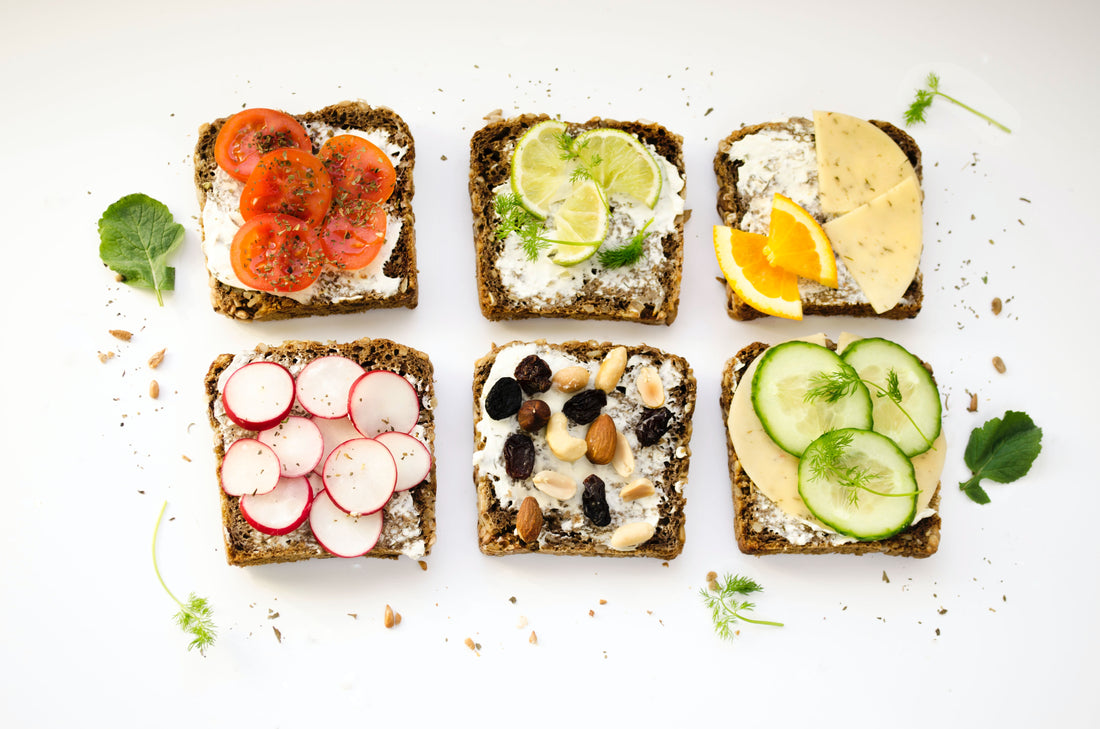“Pure Dermal Care hosted Dr. Lisa Amerine, an area naturopath, to discuss health strategies. She’s provided an article that will give you ideas for mood enhancing and skin beautification is also the result! Enjoy!”
Foods That Really Make You Happy
By Dr. Lisa Amerine, ND
Bad day? Fight the blues without blowing your diet by picking foods that boost happy brain chemicals while helping you stay slim. When you're in a funk, your first instinct isn't to whip up a bowl of lentil soup or pour yourself a glass of milk. But compounds in these foods may help ward off depression, fight fatigue, and reduce anxiety by increasing levels of mood-boosting brain chemicals such as serotonin and dopamine. Traditional comfort foods, like those loaded with sugar, saturated fat, alcohol, and caffeine, on the other hand, can actually amplify edginess - not to mention blow your diet. To perk up without packing on the pounds, pick one of these nine healthy eats next time you're feeling down.
Popcorn
The mood booster: Tryptophan
We hear tryptophan and we immediately think turkey - and tired. Truth is, when the amino acid is consumed with carbohydrates instead of protein, it's more effective in aiding the body's production of serotonin, a tranquility-inducing brain chemical. A study published in the journal Acta Psychiatrica Scandinavia found that foods containing tryptophan, like mustard greens, pumpkin seeds and bananas, offer mood-elevating effects. Tryptophan levels are often low in people suffering from depression, although researchers are unclear as to whether the relationship is a cause or a consequence of the condition. The next time you feel down, try 3 cups of air-popped popcorn for 100 calories instead of gnawing on a drumstick.
Walnuts
The mood booster: Alpha-linolenic acid
While EPA and DHA, two omega-3 fatty acids found in salmon, tuna, and fish oil supplements, have been touted to help depression sufferers beat the blues, a new study of 55,000 women published in the American Journal of Clinical Nutrition suggests that alpha-linolenic acid (ALA), an omega-3 fatty acid in plant foods like walnuts, soybeans, and flaxseed, is the real star in alleviating depression symptoms. In the 10-year study, Harvard University researchers found that the risk of depression was lower among women who consumed more ALA, a compound previously thought to have few health benefits.
Sunflower Seeds
The mood booster: Selenium
A Nutritional Neuroscience review of five studies on selenium and depression linked deficiencies in the mineral to poorer mood. Another study published in the Journal of Maternal-Fetal and Neonatal Medicine suggests that selenium can help prevent postpartum depression. When 44 postpartum women received 100 mcg of selenium daily, they scored lower on a postnatal depression scale. While Brazil nuts offer the biggest dose of selenium - a half-ounce serving packs 272 mcg - sunflower seeds are a lower-calorie snack option. A quarter cup of roasted seeds in their shells has about 70 calories and delivers 30 percent of the daily recommended value of selenium, while a single Brazil nut packs around 30 calories.
Lentils
The mood booster: Folate
Skip the mac and cheese and make a hearty bowl of soup your new favorite comfort food. A study published in the Journal of Nutrition found that of the 2,682 middle-age Finnish men in the study, those whose diets contained the least folate were 67 percent more likely to suffer from depression. Research suggests that low levels of the B vitamin impair the metabolism of neurotransmitters, leaving your brain short on serotonin and dopamine. Get your folate fix with a cup of lentils, which contains 230 calories and provides 70 percent of your daily folate and 63 percent of your daily fiber.
Avocado
The mood booster: Oleic acid
Healthy fats, like those found in olive oil and avocados, don't just keep belly fat at bay. They can also ward off a bad mood. Oleic acid, a monounsaturated omega-9 fatty acid, increases the feel-good chemical serotonin in the brain, keeping you calm. In a study published in the Archives of General Psychiatry, researchers at the University of Nivarra in Spain found that people who consumed a Mediterranean diet rich in fruits, nuts, fish and olive oil were 30 percent less likely to become depressed.
Citrus Fruit
The mood booster: Vitamin C
For only 60 calories a pop, it's easy to get nearly 100 percent of your daily recommended vitamin C in one place. Skip your orange and you might end up feeling bitter. In a study conducted by doctors at Jewish General Hospital in Montreal and published in the journal Nutrition, researchers found that when vitamin C-deficient hospital patients were supplemented with 500 mg of vitamin C twice daily for 1 week they experienced a 34 percent reduction in mood disturbance. Even the smell of citrus can put you in a better state of mind. When participants in an Ohio State University study smelled lemons, they reported greater improvements in mood and had higher levels of norepinephrine compared with when they sniffed lavender or unscented water.
Bananas
The mood booster: Magnesium
This portable treat makes a great 100-calorie snack when you're craving something sweet. Bananas are a good source of magnesium, a mineral that helps the brain deal with stress and may help boost mood, too. In a study of 5,700 adults published in the Australian and New Zealand Journal of Psychiatry, researchers linked higher levels of anxiety and depression to study participants with lower magnesium intake. Bananas are also packed with potassium, which helps boost alertness, tryptophan, an amino acid that aids the body in producing mood-boosting serotonin and mood-stabilizing vitamin B6.

